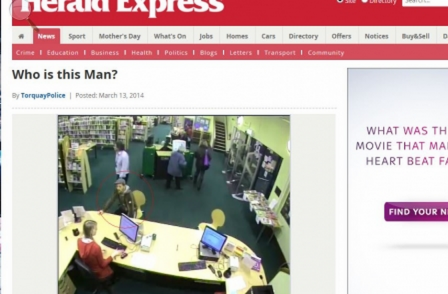
Essex Police have unwittingly contributed to the ongoing debate about police posting a crime story direct to a newspaper’s website.
I warned last week of the legal dangers that could emerge from this practice.
And bang on cue, Essex Police released a press release that contained a prejudicial quote.
They reported that eight people had been charged after a raid on a cannabis farm.
The press release quoted Investigating Officer, Ds Lisa Haines, saying: "These arrests will really put a massive dent on the supply market and we hope will, in some way, enhance the quality of life for hundreds of people.”
No assumption of guilt there, then.
Essex police could in fact be ticked off, or prosecuted, for prejudicing the trials of the eight people on charge, though don’t hold your breath. The media would be an easier target.
But what would happen if they had posted the story direct to a local media website, like Torquay police did last week?
Would the publishers be the police, or the local website?
If the website was held responsible, they could argue innocent publication under the Contempt of Court Act, and claim they didn’t know that proceedings were active.
And with no subs or reporters involved, they’d probably get away with it.
Or, like Local World, they could claim they are covered by the European Commerce Regulations 2002. They probably are.
But do we as a free press really want work like this? Do we really want to become a "mere conduit" … a drainpipe that other people’s work flows down?
The Chartered Institute of Journalists are the latest organisation to complain about Torquay police taking on the role of editor/publisher arguing that it was an attack on journalism and democracy.
Amanda Brodie, chairman of the CIOJ’s Professional Practices Board, described the practice as "wholly unacceptable".
In a statement she said: “It is not the job of newspapers to be a mouthpiece for the police or any other body – their job is to hold them to account, not cosy up to them in this way.
“Who is scrutinising and making the judgements over this content? It’s not an impartial, professional journalist acting as the eyes and ears of the public – it’s the chief of police. The first thing totalitarian states do to consolidate absolute power is seize control of the newspapers and TV stations. That is what’s happening here – by stealth, and under a parliamentary democracy."
She added: “This policy will undermine the trust people have in the impartiality of their local papers. No local authority or commercial organisation should be allowed such access to the pages of our newspapers – it opens the door to bias and manipulation of news content.
Cleland Thom is author for the new eBook: Internet Law for Journalists.
Email pged@pressgazette.co.uk to point out mistakes, provide story tips or send in a letter for publication on our "Letters Page" blog
